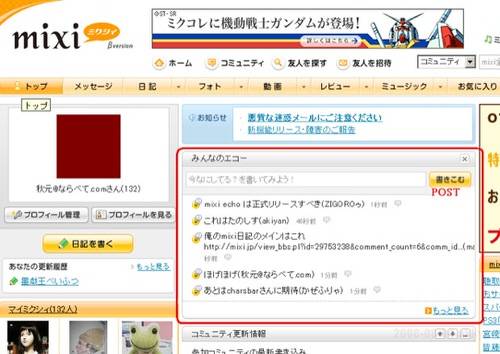Mixi, the giant Japanese social network, announced last week that it is now acting as an OpenID provider. The implementation is particularly sophisticated, Six Apart’s David Recordon says they are the first major provider to support the exchange of user profile data via OpenID. The service is also providing a mechanism for users of 3rd party sites to limit access to content elsewhere to visitors who are their friends on Mixi.

All of it begs the question – where’s Facebook with OpenID and why do we need the proprietary framework of Facebook Connect when Mixi is doing many of the same things with open standards?
About Mixi
Mixi is four years old, has a strong mobile component, lots of privacy and is available only in Japanese. Job hunting is big on the site. It is experimenting with a Twitter-like system for commenting and other communication. Google Maps Japan includes a button on search results pages to embed maps on Mixi profiles.
It’s by far the biggest social network in Japan. TechCrunch ran a good in-depth profile of the site last month and AsiaJin covers Mixi regularly.

Open Profiles
The user info that is being passed along with Mixi OpenID includes full user display names and profile URLs. From profile URLs all kinds of user attributes can be discovered and programmed against by 3rd party developers. That’s exciting stuff. Attributes of authenticated users (using the Simple Registration Extension) plus links to their friends profiles makes a pile of information that developers should be able to do interesting things with, off site and on Mixi.
Along with OpenID, Mixi announced the availability of a developer platform. We’re not able to evaluate that platform as the entire site is in Japanese and requires account log-in.
The moral of the story, though, is that another major social network now supports OpenID and is pushing the envelope with the features included. They aren’t acting as a relying party yet, allowing users to login with OpenID from other networks, but the functionality of Mixi user profiles has now increased dramatically thanks to open standards.
Since Mixi is only in Japanese, we presume that Facebook won’t feel a lot of pressure directly. We can’t help but wonder, though, how long the proprietary business interests inside Facebook will be able to hold out against the standards loving developers we know are inside the company and who would love to do something like what Mixi is doing.
















